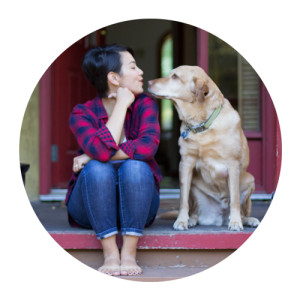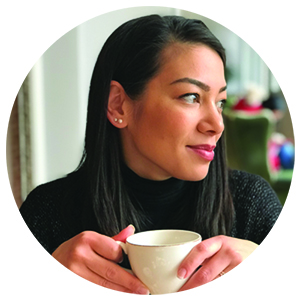Its hard being in a new place. I know this first hand as last year my husband, Ben and I moved ourselves and our two small children to Cambridge, England so that he could pursue graduate studies.
Have you ever heard of Downton Abbey? For those of you that are unfamiliar with it, it is a British period drama and airs as part of the Masterpiece theatre series on PBS. Its fantastically addicting , and for me, Downton Abbey makes so much more sense after having lived in England for a year. For example, at one point, Violet the Dowager Countess of Grantham– the very aristocratic matriarch of Downton who is played by Maggie Smith, (you might know her from Sister Act, or more recently from Harry Potter), comments to Cora, her daughter-in-law about the anticipated arrival of Cora’s mother.
She says, “I’m so looking forward to seeing your mother again. When I am with her, I’m reminded of the virtues of the English.”
Then Matthew (who is the heir of Downton) says, “But isn’t she American?”
To which Violet replies, “Exactly.”
While we share a common language, Britain is worlds apart from North America and more specifically, Cambridge is worlds apart from Vancouver. While many areas of England have given up the stiff traditions of the British, the university of Cambridge continues to pride itself in all the virtues of which Violet speaks. It is a hub of tradition, hierarchy and excellence in scholarship. The choirs wears robes, the boys of King’s college where top hats.
I am reminded of one night when we were invited to dine at high table at Churchill College. Ben received these types of invitations often but this was a once in a lifetime experience for me. All the fellows and scholars were in their gowns and black tie as I was seated between a physicist and a maths scholar. The gong rings to signal dinner is served and after praying in Latin and toasting the Queen and Sir Winston Churchill we were treated to six courses with wine pairings for each. After a short break and quick stroll, we returned for dessert, cheese and port. Our host, the master of Churchill college, was kind enough to remind us that the port was not to touch the table and if your neighbor failed to observe this etiquette you were to lean over and softly say (because everything in Britain is said softly) “Do you know the Bishop of Norwich?” But you had to be careful because the person might actually be the Bishop of Norwich.
It was completely uncomfortable to say the least, (it was completely thrilling as well), but uncomfortable nonetheless. I didn’t belong. I don’t have a bunch of letters after my name, I struggled with which fork to use with which course, and my goodness, can those British drink! My Asian blood could not keep up.
But one of the truisms of being a stranger is that you are going to be uncomfortable – whether it be in England, or in your own town.
Even if you’ve lived here for all or most your life, some of us, still feel like strangers. Because what does it mean to be a stranger but a person whom no one knows or is not familiar. A newcomer, a foreigner, an alien.
A few years ago a survey conducted by the Vancouver Foundation found that above homelessness, drug abuse and affordability, residents’ greatest concern was that of isolation. They reported that Metro Vancouver residents feel increasingly estranged from their friends, their neighbors and their communities. After further research by means of telephone and online surveys some troubling trends began to emerge.
Of those surveyed, 1 in 3 people said they considered Vancouver a difficult place to make friends, most people don’t socialize with their neighbors nor have any desire to get to know them. About half don’t volunteer in their communities and while most agree that diversity is a good thing, most prefer to be with others from their own ethnic group. We see this all the time on the street, on the bus, in a mall.
We have become a culture of isolated dwellings, tall fences and busyness.
And as John Ortberg says, “Busyness creates a diminishing capacity to love.” Which is precisely, what God has called us to do.” You shall love the Lord your God with all your heart and with all your soul and with all your mind. This is the great and first commandment. And the second is like it: You shall love your neighbor as yourself.” (Matthew 22:36-40)
But who is our neighbour? It is the person beside you on the bus, in front of you in the checkout, on the street corner begging for food – it is the hungry, the thirsty, the stranger, the naked, the sick and the imprisoned. In the book of Matthew, chapter 25, Jesus is explicit – When the son of Man comes in glory, and all the angels with him then he will sit on his throne and he will separate the sheep from the goats.
The commentary in the ESV study bible explains it well, “The “sheep” will be commended for their great compassion for those in need. The righteous will inherit the kingdom not because of the compassionate works that they have done but because their righteousness comes from their transformed hearts in response to Jesus’ proclamation of the kingdom, as evidenced by their compassion for the “least of these” In caring for those in need, the righteous discover that their acts of compassion for the needy are the same as if done for Jesus himself.”
Do you ever wonder if maybe people busy themselves because it helps them to forget just how needy they are?
About 5 years ago, I bought myself a new camera. It was a Canon 60D. It’s a beautiful DSLR and it can take amazing photographs. With the purchase of this camera however, something unexpected happened. I started to see the world through a different lens. I slowed down – I started looking for beauty to capture – detail, texture and light.
I want to encourage you today to see the world around through a different lens. To allow God to transform your heart so that you may see the world through the lens of Jesus. Maybe, you’re saying to yourself, those opportunities just don’t come to me. I don’t encounter the hungry or the thirsty or many strangers for that matter.
And I would say, maybe you do, but you just don’t take the time to see them through Jesus’ eyes.
I can recall a few instances in my life when I would have rather read my book, or just sat in silence but a stranger reached out in desperation. Just the other week, on the skytrain, I was able to snag a seat…which is rare, because we are usually, during rush hours, we are packed in like sardines – standing room only. And the man next to me, who was very typical in that he was East Indian, wearing a Turban, dressed as a security guard and someone I would not naturally strike up a conversation with, began to share his life with me. He didn’t like Vancouver. For exactly the reasons listed above. His children liked it but he found it lonely.
I’m glad he took the time say hi and I’m glad I wasn’t too busy to talk to him.
Sure, it was uncomfortable, but I was glad that I could be something contrary to the Vancouver that he disliked so much.
And I am glad that despite Cambridge’s pretentious reputation, they welcomed us in and invited us for dinner. It is hard being a stranger and finding yourself in a foreign land, but aren’t we all as Christians, just that? Paul writes in Philippians, chapter three, “…our citizenship is in heaven, and from it we await a Savior, the Lord Jesus Christ.”
And sometimes, okay, most of the time, life can be uncomfortable because as Christian we are called to live in contrast, to be different, to set our eyes on the things above. So let us pray for transformed hearts so that we may see the world through a different lens. Get over our own discomfort of feeling like a stranger and welcome the strangers around us – feed them, clothe them, offer them friendship. When is the last time you reached out to the “least of these”? Let us slow down and look for opportunities to show compassion – to feed the hungry, to care for the sick, to welcome a stranger.
**This is a transcript from when I spoke at World Day of Prayer 2013 but I feel it is just as relevant today as it was then.**















Leave A Reply